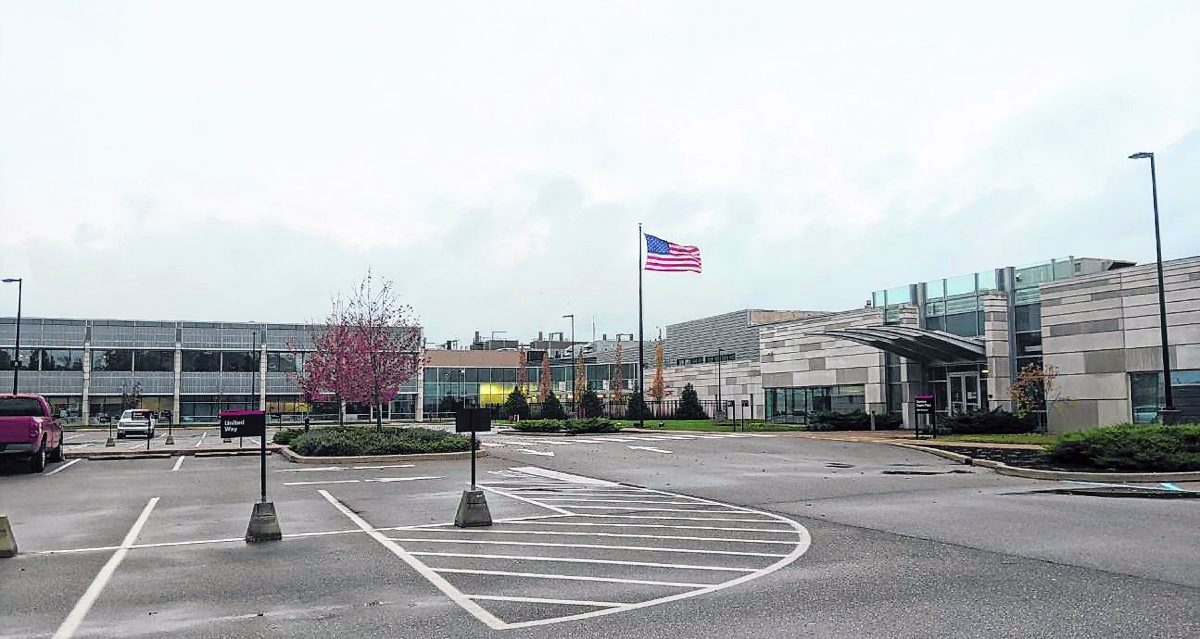
As Cummins Inc. continues to invest in the Seymour Engine Plant, city officials have agreed to support those efforts.
During a Seymour City Council meeting Monday night, members unanimously voted 7-0 to pass a resolution recommending the granting of an Economic Development for a Growing Economy, or EDGE, tax credit to Cummins by the Indiana Economic Development Corp. not to exceed $550,000.
The resolution was introduced by Councilman Seth Davidson, chairman of the industrial development committee, and Jackson County Industrial Development Corp. Executive Director Jim Plump explained how the EDGE tax credit works.
[sc:text-divider text-divider-title=”Story continues below gallery” ]Click here to purchase photos from this gallery
Earlier this month, Cummins announced plans to invest more than $25 million at the Seymour Engine Plant over the next several years, a move that is expected to create and retain more than 150 jobs over the next decade.
As part of the incentive, the state offered the EDGE tax credit.
“That goes against corporate income tax that corporations have to pay, and if there is additional money after their corporate tax liability is paid, that can come back to the company in the form of a cash refund,” Plump said.
That’s generally done in a five- to 10-year period, he said.
“In the case of this project, Cummins is looking at investment from now through ‘28,” he said. “I would imagine that the EDGE tax credit is for 10 years, so over a 10-year period or whatever the length of the tax credit is, Cummins can capture in either tax credits or cash $550,000 over that period.”
The IEDC also offered up to $100,000 in training grants based on the company’s plans to create up to 87 new jobs by the end of 2028. These tax credits are performance-based, meaning the company is eligible to claim incentives once Hoosiers are hired.
The investment in upgrading existing plant infrastructure at SEP, which is Cummins’ global high-horsepower headquarters, will bring in new manufacturing capabilities, including assembly, machining and block lines, and testing equipment. It also will improve and refine the plant’s capabilities to prepare for the addition of a new engine platform that will be launched for global customers in 2024.
SEP produces natural gas and diesel engines ranging in size from 15L to 95L. These engines support power generation, rail, marine, mining, agricultural, oil and gas, industrial and military applications.
Over the past 10 years, Cummins has invested more than $350 million at its high-horsepower operations in Seymour, including a significant renovation of the plant and the addition of a cutting-edge technical center, bringing together key capabilities to enhance technological and product development. The investment has nearly doubled employment at its Seymour operations, which now has 1,100 employees.
In 2012, Seymour was granted a Certified Tech Park as an incentive when Cummins was working on the Hedgehog project.
The city captured the maximum amount the state allows, $5 million, through that. Last year, Plump said a new law passed allowing communities that have hit the cap to be eligible to capture up to $100,000 a year from the Certified Tech Park, which primarily consists of Cummins.
That money comes from payroll withholding that’s paid to the state, which is the same place EDGE tax credits come from, Plump said.
“All this (resolution) is saying is that the city of Seymour understands and encourages the state to grant $550,000 EDGE tax credits to Cummins, and there is a chance — a small chance because $550,000 over a 10-year period when you look at Cummins’ payroll and the number of people they employ — it is not likely to affect that $100,000 that we can now get, but it could,” he said.
“Is it likely? No. Could it happen? Yes,” Plump said. “It’s the same old argument that we always make about tax abatement. If Cummins does not get the EDGE tax credit, Cummins may not expand and invest money that they are, so we have nothing to lose.”
Councilman Jerry Hackney received confirmation from Mayor Matt Nicholson that this would not have an effect on real or personal taxes.
“The tech park is based off of income or payroll, where your other TIF (tax increment finance) areas are based off of property taxes, so it could only affect the payroll side,” Nicholson said. “Cummins has got such a broad employee base that we’ll probably never see the effects of it.”
Plump said JCIDC currently is working with Cummins, the Jackson County Learning Center, Ivy Tech Community College and other partners to gather the necessary documentation for recertification of the tech park.
